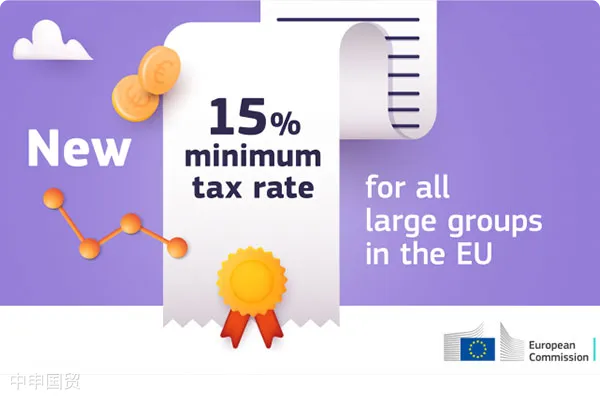- Shanghai Zhongshen International Trade Co., Ltd. - Two decades of trade agency expertise.
- Service Hotline: 139 1787 2118
Starting from January 1, 2024, the EU introduced a groundbreaking new regulation imposing a minimum effective tax rate of 15% on multinational companies operating in EU member states. This new framework brings greater fairness and stability to the tax landscape in the EU and globally, while making it more modern and better suited to todays globalized, digital world. These rules were unanimously adopted by member states in 2022, formally establishing the EUs implementation of the so-called second pillar rules in the 2021 global agreement on international tax reform.

Where Does It Come From?
The minimum corporate tax is one of the two workstreams agreed upon by the member states of the OECD/G20 Inclusive Framework to address the tax challenges of the digital economy. They focused on reaching a globally - consensus solution to reform the international corporate tax framework, and finally reached a global agreement among 137 jurisdictions in October 2021. The discussions focused on two broad themes: Pillar One, the partial re - allocation of the right to tax, and Pillar Two, the minimum tax rate on the profits of multinational enterprises.
Who Does It Apply To?
These rules will apply to any large group with an annual consolidated financial revenue of more than 750 million euros, whether domestic or international, including the financial sector, and having a parent company or subsidiary in an EU member state.
How is the Effective Tax Rate Calculated?
The effective tax rate for each jurisdiction is determined by dividing the taxes paid by entities in that jurisdiction by their income. If the effective tax rate of entities in a specific jurisdiction falls below the 15% minimum, the second pillar rules are triggered, and the group must pay additional taxes to bring the rate up to 15%. This additional tax is called the Income Inclusion Rule. This additional tax applies regardless of whether the subsidiary is located in a country that has signed the OECD/G20 international agreement.
Member states must implement these new rules by December 31, 2023.
Relevant original text:Minimum corporate taxation
Related Recommendations
? 2025. All Rights Reserved. Shanghai ICP No. 2023007705-2  PSB Record: Shanghai No.31011502009912
PSB Record: Shanghai No.31011502009912










